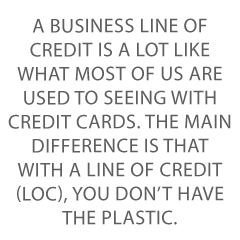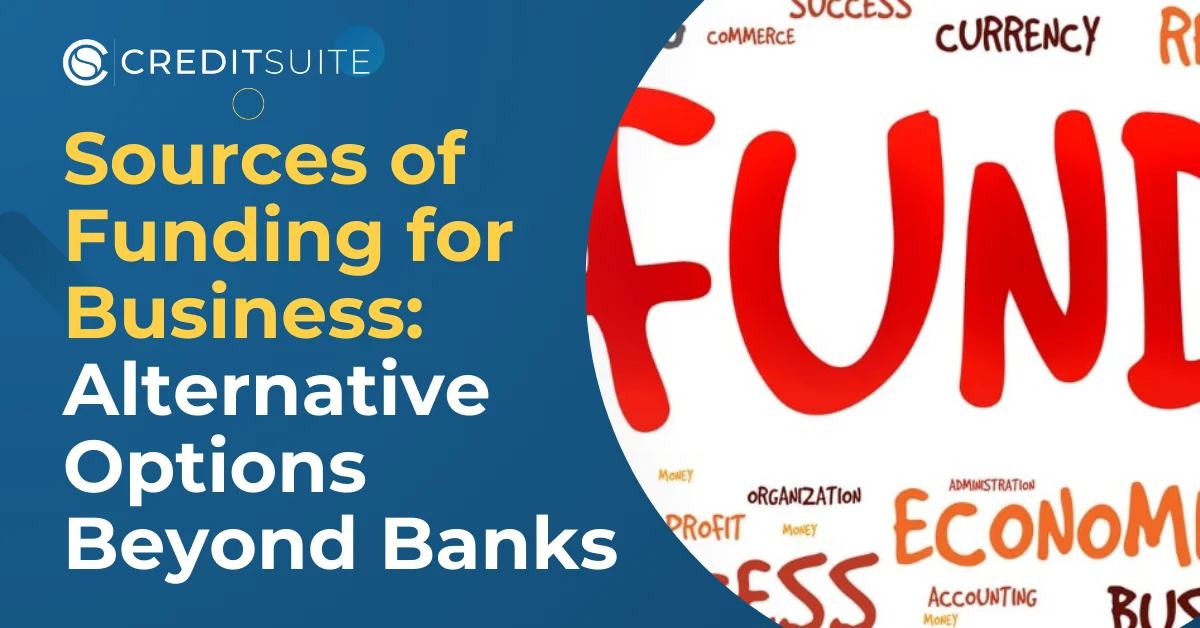When most people think about sources of funding for a business, they often get stuck on banks. And while a traditional bank loan is still a perfectly acceptable way to get capital, there are other ways out there.
To think outside the standard small business loan ‘box’, an entrepreneur should consider several funding sources. Here are seven we love—and an eighth that we think you shouldn’t consider unless you have no other options.
Source 1 – a Small Business Grant
If you are a company owner who belongs to a protected class (such as LGBTQ+, minorities, women, immigrants, convicts, and disabled business persons), grants are out there.
This is not to say that other business owners cannot get grants. But being a member of a traditionally underrepresented community or cohort can definitely help.
Keep in mind that grants are often not for a lot of capital. However, the best news about them is that you do not have to pay them back.
You will have to fill out forms and provide documentation. Often, a business plan is one of the requirements. A business plan is a vital tool for your business anyway.
Even if you never apply for a grant, you can use one to help get an SBA loan. The Small Business Administration definitely wants to see a business plan. More than one funding option wants to see one.
And, of course, you can use it as an actual plan for your business!
Grants are a helpful form of startup funding as you need time but not capital to get them.
Make sure to check not only federal sources of funding like the USDA and grants.gov. State, county, city, and local governments and organizations can be another source of grant funding, particularly for economic development.
Source 2 – Angel Investors
The term ‘angel investors’ is, in part, a fancier way of saying you’re getting capital from your friends and family. While there is such a thing as a certified angel investor, when the money is coming from family, it’s likely to be for a lot less.
But a business owner should keep in mind that this funding source can come with certain strings attached to it that other funding sources do not have.
 Will your family still talk to you if they don’t get as good a return on their investment as they would like? If your mom ends up a disappointed investor, is Thanksgiving going to be awkward?
Will your family still talk to you if they don’t get as good a return on their investment as they would like? If your mom ends up a disappointed investor, is Thanksgiving going to be awkward?
And take note that this is a kind of equity financing. That is, you are giving up some of the ownership of your business in exchange for angel investor capital. This means less control and fewer profits.
But if you retain a controlling interest, you can remain the captain of your own ship.
Since this is not a loan, you will not have to give the money back, unless you want to buy out the other owners. And perhaps that would end up being the best thing to do, particularly if there’s friction with some of your angel investors.
And then maybe you can be invited back to family functions.
Source 3 – Venture Capital
Venture capitalists tend to be more hard-core than angel investors. A VC firm will deal in a lot more capital. But they also want to be part of something bigger and more cutting-edge.
A venture capitalist will only truly be interested in a game-changing business. That’s Airbnb, Uber, or the like. Radical, paradigm-shifting businesses can attract the attention of venture capitalists.
But ordinary businesses—unless they have a significant new twist on an older way of thinking and doing things—will not draw the interest of venture capitalists and they will not want to supply seed funding.
A venture capital firm will also want to see a decent return on investment, and they will want to get more out of their relationship with you than many angel investors will.
Since a venture capital firm will also want a larger share, you will be sharing a lot more of the decision-making with them. In exchange for equity funding, the firm will want at least one seat on your board of directors, if not several.
Investigate potential VC firms well, to be sure they are on the up and up. Do not go into this form of equity financing blindly.
Source 4 – Debt Financing
Debt financing is when a company raises money by selling debt instruments to investors. It is the opposite of equity financing, which entails issuing stock to raise money. Debt financing is when a firm sells fixed-income products, such as bonds, bills, or notes.
This should also not be confused with equity crowdfunding, where a business can raise capital via a platform dedicated to this type of business financing. It is also not private equity. Both of those are business funding sources most often used for real estate.
Financing via debt means you will be paying back what is essentially a loan. But the lender at least will not be getting any equity in your company with this financing option.
Bond interest payments will take precedence over stock dividends. As a result, bond value can be reduced if profits decline. Also, interest rates are not the same as for a loan from a bank or credit union.
Also, not every small business will be able to raise working capital this way. According to Small Business Chron,
“Public corporations can sell bonds publicly by registering them with the Securities and Exchange Commission. However, if you run a private business, you can issue bonds without registering them with the SEC. The key is qualifying for a private placement of bonds that are exempt from SEC registration.”
Source 5 – Cash Flow Financing
Cash flow financing is one of those financing options that is related directly to how much you anticipate you will make in the future. Invoice financing is similar.
With both types of financing, you are only going to be getting a loan if you can prove that your incoming cash flow is relatively stable.
Since a lender’s main concern is the viability and reliability of your clientele, they will be less concerned about your personal credit score or financial situation. Therefore, this can be a good loan for a small business owner with a bad credit history.
At the same time, this requirement means that it is not likely to be a good loan for a startup business unless the startup is a few years old and already a going concern turning a profit.
As a result, very new small businesses with owners with poor FICO scores will do their best by getting grants or selling equity in some manner. Equity, in that case, will be their main asset.
But for small businesses with provable incoming cash flow, this form of business financing can be a good choice. It is also an incentive to make sure that the customers you are dealing with are financially sound and dependable when it comes to paying you.
The last thing you want is for a customer to default and be out that money, plus be unable to get financing in this manner, either.
Source 6 – a Business Line of Credit
A business line of credit is a lot like what most of us are used to seeing with credit cards. The main difference is that with a line of credit (LOC), you don’t have the plastic. 
Just like with more familiar credit cards, a business LOC is reusable. You have a LOC for some specified amount of money, say, $1000. If you use $300 of it, then you have the remaining $700 to use.
But once you have paid back the $300, you have $1000 again to spend.
Due to this convenience and ease of use, business LOCs are rather popular—but they can be somewhat difficult to get.
Corporations with some time in business, proven regular incoming revenue, and owners with good personal credit scores are more likely to qualify for business LOCs. A LOC provider will probably want the line to be secured with collateral, too.
Providers will also want to see your business’s debt schedule, to determine if you can afford to pay back the LOC if you draw from it.
For small businesses or their owners who have trouble meeting these requirements, corporate credit cards (see below) can be a similar option that is a lot easier to get.
And for owners with good personal credit, our Credit Line Hybrid can be a smart choice.
Source 7 – Using a Business Credit Card
Business credit cards are mainly good for smaller businesses where you need less in the way of financing. Hence if you have a purely online business, are the only employee, and either drop ship or don’t sell physical goods, they can be a viable option.
But you will need to know how to build business credit first.
Business credit is credit associated directly with a business rather than its owner. As a result, the owner can have poor personal credit and still build good business credit.
But keep in mind that FICO SBSS and Experian include personal credit in their business credit scoring calculations. Hence personal credit isn’t 100% irrelevant.
Along with good personal credit, you can help your small business qualify for company credit cards by building Fundability™. Other Fundability factors include having a separate business address, phone number, website, and bank account.
Corporate credit cards can also be good for the expenses that go along with building, stocking, and staffing a business. You can get marketing materials, computers, cleaning supplies, and the like with trade credit.
And trade credit is easier to get than most business Visa cards or MasterCards. Use your credit, pay it back on time, and you will start to build a good business credit score.
Source 8 (But We Don’t Recommend This One!) – a Home Equity Loan
A home equity loan (or HELOC) is a loan you take out where your residence is the collateral. For many new business owners, the equity in their homes is the largest asset they have. As a result, that can make feel it natural to turn to for business funding.
However, the very thing that makes a HELOC attractive is also the very thing that makes it risky—your home is on the line if your business defaults.
Given that it can take decades to build up sufficient home equity, but only a few years to fail in a business venture, the risk should be unacceptable to a lot of business owners—if not all business owners.
The upside to using a HELOC is you are likely to be able to get it through a mainstream financing source. In fact, the bank or financial institution holding your mortgage might be willing to give you a HELOC.
Working with a more mainstream lender means there are more regulations, particularly around how much you can be charged in interest. Even if interest rates continue to rise dramatically, they are still not likely to go as high as those for, say, a merchant cash advance.
And, of course, this form of business funding is not available to business owners who are not homeowners.
Takeaways
Businesses have several sources of funding that go far beyond banks and credit unions. Time in business, revenue, and the owner’s personal credit scores will narrow down the list. But it can still be tough to choose among so many options.
That’s where Credit Suite comes in. We offer a FREE business credit consultation to show you where your business stands financially, so you can determine where you will most readily qualify. And we help you build Fundability™ so you can widen your options.
Contact us today and see how we can help.

